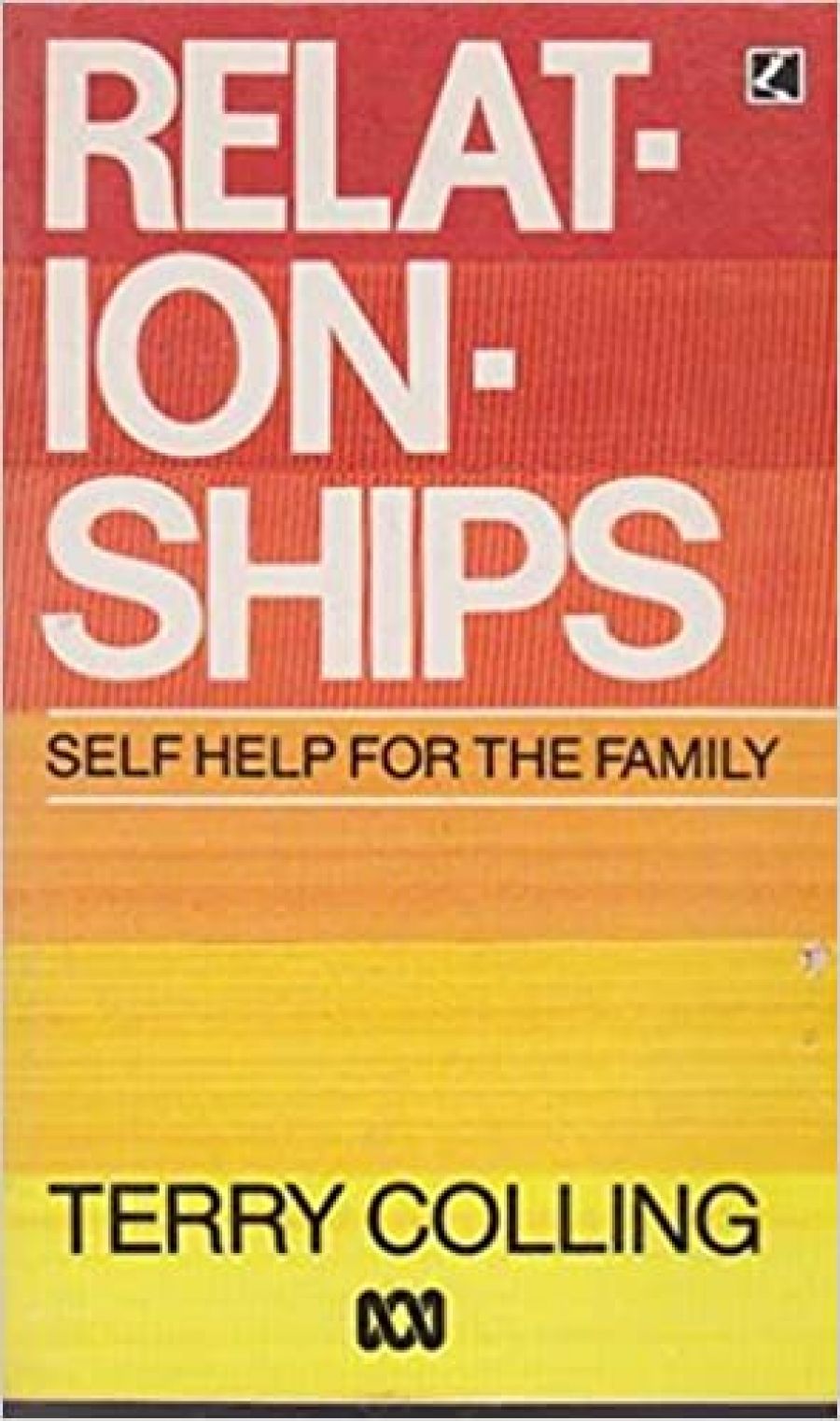
- Free Article: No
- Contents Category: Society
- Review Article: Yes
- Online Only: No
- Custom Highlight Text:
Relationships is a worthy book, scattered with sensible observations and reassuring comments, but locating them is like chewing through sawdust to find sultanas.
- Book 1 Title: Relationships
- Book 1 Subtitle: Self-help for the family
- Book 1 Biblio: Black Falcon Press, 172 pp, $9.95 pb
Subtitled ‘Self-Help For the Family’, the book is not directed to professionals or academics but to the ordinary people who are the practitioners of marriage, parenting, and family living. Nevertheless, it reads like a plug for the helping professions. The author repeatedly points out situations requiring professional counselling but never once mentions practical strategies by which readers might define and deal with their own problems.
A strong teach-yourself tradition has developed pedagogic techniques for everything from Swahili to sexual competence. Relationships bypasses fifty years of teach-yourself, thirty years of programmed learning, and twenty years of human potential development. The book is a throwback to homily literature that became obsolete in 1914. Surely a man in Collings’s position must have read Born to Win (Jongeward and James), Women as Winners (Jongeward and Scott), Nice Girls Do (Kassorla), or Your Erroneous Zones (Dyer)?
The book is not even sure of its audience. It almost always speaks of husbands, wives, parents, children, etc. in the third person, with occasional uneasy slides into the paternalistic plural - ‘we are dealing with a crisis’, ‘our children’, or the impersonal ‘one’s life’. It risks second person very rarely – ‘you are stuck with your children’ – but this is not enough to engage the readers to active collaboration in their own interest.
The author has succumbed to the John Stuart Mill fallacy that people are inherently rational and may be expected to amend their lives along middle-class competent lines if they are given data and the literacy necessary to assimilate it. This is useless when people are confronted with complicated emotional interactions requiring self-awareness, self-analysis and strong motivation.
Relationships is constructed in lucid chronological sections, beginning with marriage and ending with death. It avoids jargon most of the time: despite occasional thin blanket terms like ‘relevance’, the vocabulary is mainly simple. The sentences are short but rendered crabbed and vague by inversions and passive voice. Circumlocutions make them unnecessarily wordy and diffuse. There is much compassion in the writing but no colour or bite. This well-intentioned simplicity is no substitute for plain, memorable, Orwellian writing.
I want to nominate Relationships as the most forgettable book of this financial year.


Comments powered by CComment